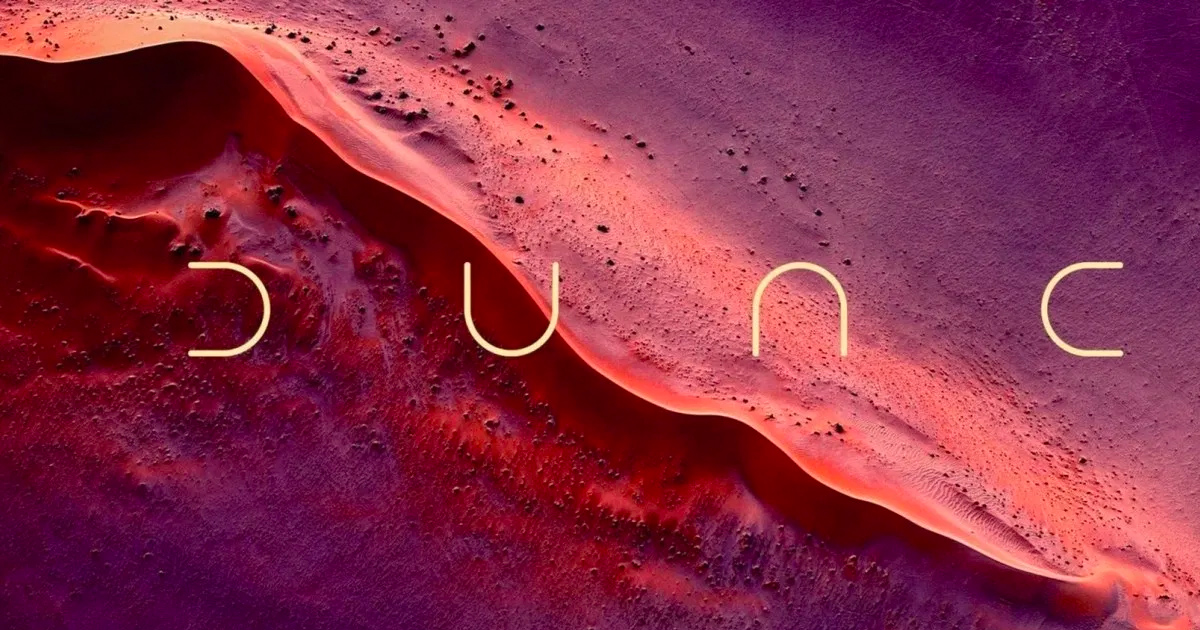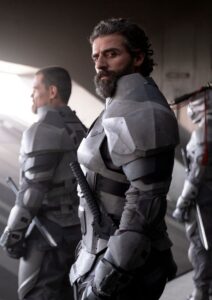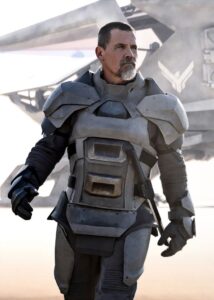
Dune. Arrakis. Desert planet. More so than almost any other fiction series, Frank Herbert’s sci-fi epic helped shape my love for complex, mature material that also delivered on my adolescent hunger for action, sex and good old-fashioned Shakespearean tragedy. I am obviously not alone. It’s why so many filmmakers have tried to adapt his work to the screen. Tried and failed? Well, it’s been a mixed bag. Which is why I am so excited – and a little nervous – to see Denis Villeneuve throwing his director’s cap in the ring. Will he succeed where others have failed? I guess it really depends on what your metric is for success. If you are an investor like Legendary Entertainment, that will purely be financial. As a simple fan, success will mean an entertaining movie that is spiritually faithful to the original material. Let’s dive into why Frank Herbert’s masterpiece has eluded the same type of obsessed fandom found in Trekkies (Star Trek), Ringers (Lord of the Rings) or Star Wars fans (they are too big and diverse to have a nickname), why the series has so far failed to transfer to the screen, and why you should be excited for what’s to come.

So why has Dune been so difficult to make into a feature film? The problem starts with the structure of the novel. At 473 pages, much has to be cut from the overall story to fit into a 2 or even 3-hour movie. Jorodowski originally planned an epic 10-hour film to be able to capture the breadth of the characters and story. Jorodowski was a bit of a madman, but I think you’ll get my point. I am encouraged that Villeneuve is breaking Dune into two movies, although I am curious how fulfilling of an experience watching the first movie will be, considering the fall of House Atredies doesn’t happen until almost halfway through the novel. It is a fine point to break the story to conclude the first movie, but will it go over well with an audience outside of the fan base, to leave on such a downer cliffhanger? It’s like beginning the Star Wars trilogy with The Empire Strikes Back. After all, this first movie is supposed to be a tentpole production for the 2nd movie and the HBO series. I would prefer it if the story was told through an episodic series like Game of Thrones. Breaking Dune into a six-hour-long episode would allow to build the world of Dune, flush out the peripheral characters, develop the stakes so we really know all the players, and allow for more measured pacing. It would also allow the writers to deviate more from the original material which I am always a huge fan of when switching mediums, whether from a novel or a video game to a teleplay.
Game of Thrones proved that stories once relegated to genre fans could be accessible to mass audiences. Inevitably, many of the wrong lessons will be learned by studios who are rushing to capitalize on its success. GOT was beloved in the fantasy circles before it was a television smash hit because it turned tired fantasy tropes on their heads. An overcrowded, stale genre got a much-needed boost from the brutal realism of George R. R. Martin’s world. He also limited the fantasy to the periphery, using them as plot devices but keeping the characters rooted in the real world. It helped that he based most of the story from real-world events like War of the Roses (if you haven’t learned about that dark period in English history, I highly recommend it; truth is indeed stranger than fiction). Martin was also a television writer and his novels The Song of Ice & Fire are heavily structured for that medium, complete with character arcs, cliffhanger endings, and many surprise deaths that throw chaos into the narrative at just the right moment. In other words: a very entertaining roller-coaster ride for the viewer.

Dune isn’t really comparable. It is not paced for television or film. Major plot points (like the death of Leto II) happen off-screen and non-fans will have a crash course in the intricate political motivations of the different houses and why society is set up around a drug that allows for interstellar space travel. Momentum saved GOT. Knowing Villeneuve, the film will be more atmospheric and slower paced. A cinema lover’s wet dream, but will it attract a mass audience like other sci-fi franchises? After Blade Runner 2049, the jury is still out if Villeneuve is capable of that.
One of the aspects I am most excited about is the look of Dune. The few production stills I have seen are very enticing. Frank Herbert’s approach (what GOT got right) put the science fiction technology on the periphery. Herbert considered his work soft-science fiction; he cared less about how technology would change our culture and more about how our culture changes our environments. Herbert set out to create a myth or legend, an epic adventure infused with heady themes of environmentalism and ecology. There’s even an anti-technology ethos baked into the very human society he crafted. This is – and will be – a bonanza for production designer Patrice Vermette, who worked with Villeneuve on Sicario and Arrival (featuring a minimalist and sleek approach to alien technology), allowing them to take the visual approach to Dune in fascinating and cinematic directions. I am relieved to watch a science fiction show that doesn’t have to worry about mobile technology or killer robots. In Dune, digital computers are replaced with human computers, Mentats who use drugs to improve their processing and computational power instead of depending on a machine. Dune successfully marries our historical, feudal past into the future without heavily relying on smartphones and computer technology that can really stifle the creativity of the world. I can’t be alone in my fatigue at smartphones and social media bleeding into every screenplay and plot device on television and in movies these days. Dune doesn’t have to extrapolate this into the future like Westworld or Black Mirror. Dune is closer to Star Wars, closer to fantasy than science fiction, yet it takes the human interaction in a larger environment very seriously. Dune will look and feel closer to a medieval epic than a future we are used to watching on screen. No big dog fights between ornithopters or laser battles between the stars. Most of the action will be knife fights.

Unlike Star Wars or Star Trek, there hasn’t been a definitive design of Dune that fans can relate to, or maybe more importantly, create a successful line of children’s toys around. Partly it’s because of Dune’s mature themes and dense content. It may also be the filmmakers who have previously tried to tackle Dune. I remember being terrified and awestruck by David Lynch’s nightmare-inducing interpretations of the Guild Navigators, Geidi Prime and heart lugs on the Harkonens. I also remember the awful, blocky force shields that obscured most of the action and the odd choice to make the “weirding way” a technology based on sound instead of the superior body/mind training that it was in the books. We can’t blame Lynch too much for failing to visualize what almost amounts to Jedi-like powers in body control and physical abilities. The mini-series Children of Dune, which played on the sci-fi Network, is the only version that was able to express this hypernatural ability visually, although it was a little too reminiscent of Star Wars.
Is the timing just right for Dune to finally cross over into mass-pop cultural appeal? Paul may seem on the surface to be the “chosen one” or the “messiah”, but Herbert was incredibly aware of exulting any leader into a religious figure.
I am showing you the superhero syndrome and your own participation in it.
— Frank Herbert
The messaging of Dune, to “beware of heroes” is more relevant now than ever before. With the domination of superhero films in the marketplace to our cult of personality president, Dune may be hitting at the right moment. Will Villeneuve be able to express the real themes of Herbert’s book or will he fall victim to the happy ending that most studio executives – and perhaps test audiences – typically demand from their escapist sci-fi (I am looking at you, I Am Legend)? The studio forced Lynch to compromise on his Dune adaptation. Will history repeat itself?

We can at least all appreciate the stunning cast that has been assembled: Francine Maisler and Jina Jay: Rebecca Ferguson as Lady Jessica, Oscar Isaac as Duke Leto, and Timothee Chalamet as Paul are all almost a spitting images of what my adolescent mind had conjured up for these iconic characters. Josh Brolin may be a little too good-looking for the “mountain of a man” Gurney Halleck but I can’t think of a single role Brolin hasn’t improved with his presence; he is a consummate team player who also lifts up the other actors. After watching Chernobyl, I’ll watch anything Stellan Skarsgard acts in, and I am excited to see his approach to the nasty, rotund villain Baron Vladimir Harkonnen. It’s also great to see Javier Bardem in a Hollywood movie and not playing the villain. I want to see the intensity he brings to the true-believer Fremen. What I am most pleased about beyond even the principal cast is the diversity of the supporting cast. I love seeing Chen Chang as Dr. Yueh, one of my personal favorite tragic characters. I was a little surprised to see a gender swap for Liet-Kynes with the casting of Sharon Duncan-Brewster but I can see the value of creating a different approach for the Planetologist. The first novel is a little light on interesting female characters and may be a welcome correction from the book.

Of course, all of this diversity may make one of the oldest story tropes age very poorly: Paul as a white savior. A mass of African American, Arabic and other assorted brown faces worshipping an outsider white leader felt a little uncomfortable and out of touch when it was Danaery’s, Queen of the Dragons. We can give Herbert a little forgiveness since he was inspired by true life white savior T.E. Lawrence. Dune was also written in 1965. Will the modern, global audience embrace this loaded imagery? It is asking too much of a work of art over a half a century old to be judged by our current prejudices, but it is a challenge Villeneuve will have to overcome if he wants a blockbuster success to allow further storytelling in the Dune universe.
Thankfully Villeneuve is helming not only the Dune feature film in theaters December 2020 but also Executive Producing HBO Max’s series, Dune: The Sisterhood (and directing the first episode). It will add some needed continuity and hopefully allow for further exploration of the series of novels that followed Dune.


Paul is anything but a savior, so I don’t think there will be a problem there.
Have you ever watched the documentary, “Jodorowsky’s Dune” that came out a few years back? As a fan you’d probably really enjoy it. If you have, what are your thoughts on it?
Two big problems converting the book to screen. One, which you mention, is the complicated political set up (I think Lynch has one of the characters try to explain It all at the beginning). The other is what to with all the internal monologue. There’s loads of it, not just telling us what characters are thinking but exposition as well. It works on page but not on screen (as Lynch’s effort shows).
Oh, and the worms. People on top of giant worms is really hard to make look cool.
It’s a shame there’s no filmmaker around today with Jodorowsky’s mad talents to tackle it.